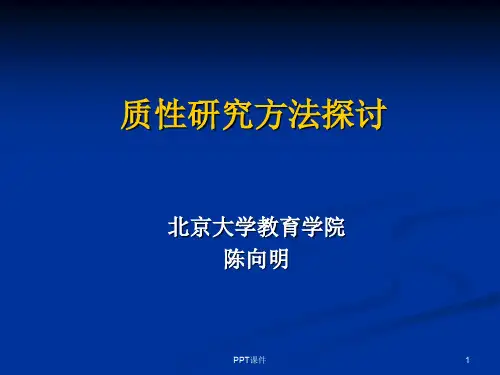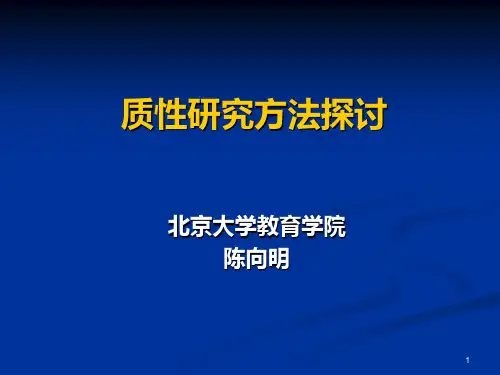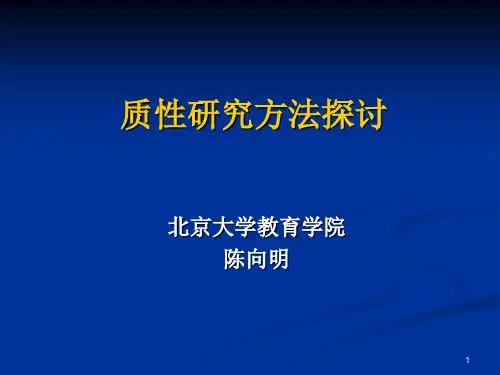Aim for credibility
The theoretical positioning of the researcher The congruence between methodology and methods The strategies to establish rigor The analytic lens through which the data are examined
Variety in qualitative inquiry
Lincoln and Guba(2000) identify five “alternative inquiry paradigms”: positivism, post-positivism, critical theory, constructivism, and participatory. Schwandt(2000) discusses “three epistemological stances for qualitative inquiry: interpretivism, hermeneutics, and social constructionism”. Crotty(1998) offers three primary epistemological influences: objectivism, constructionism, and subjectivism; these, he posits have influences in varying degrees different theoretical perspectives: positivism(and postpositivism), interpretivism(symbolic interaction, phenmenology, hermeneutics), critical inquiry, feminism, and postmodernism. Creswell(1998) distinguishes “five qualitative traditions of inquiry ” : biography, phenomenology, grounded theory, ethnography, and case study.










